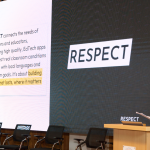May 26, 2020
The Centre for Independent Studies has published a policy paper on the impact of school closures on learning in Australia
A policy paper has been published by The Centre for Independent Studies covering the detrimental impact of school closures on learning in Australia. In this research paper the authors report that the decision taken by state and territory governments to close schools was not evidence based and contradicted advice from health, economic and educational experts. They determined that the negative impact of home schooling was most significant for disadvantaged children.
Estimated weeks of lost learning for disadvantaged students based on a 10 week term
Impact of school closures
Estimated weeks of lost learning based on a 10 week term
Year 5
Reading: 1.5
Numeracy: 2.7
Year 9
Reading: 2.3
Numeracy: 3.3
Role of Digital Learning
The report concluded that digital education only works as a supplement to face to face teaching and not as a direct replacement.
The children impacted by the Covid-19 pandemic are unlikely to realise the benefits of digital education as they are missing face to face teaching.
The report discusses evidence collected from previous studies which indicates that home schooled children perform better academically than children that attend regular school. However, it is argued that the type of home schooling experienced during the Covid-19 pandemic would have been very different to the normal home schooling model, which is based on parental choice.
Authors
Blaise Joseph
Research Fellow in Education Policy and a former secondary school teacher.
Glenn Fahey
Glenn Fahey is a Research Fellow in Education Policy and former consultant at the OECD Centre for Educational Research and Innovation.
More information on The Centre for Independent Studies is available here: https://www.cis.org.au/
RECOMMENDED: https://global-edtech.com/category/report/
“ The learning lost due to Australian school closures is not irretrievable, but it does require state and territory governments to assess students on return to school, identify those who have fallen behind, and provide intensive intervention to ensure they catch up with their peers. This is especially important, given the NAPLAN tests are not going ahead in 2020. ” Blaise Joseph and Glenn Fahey, Pain without gain: Why school closures are bad policy, The Centre for Independent Studies









